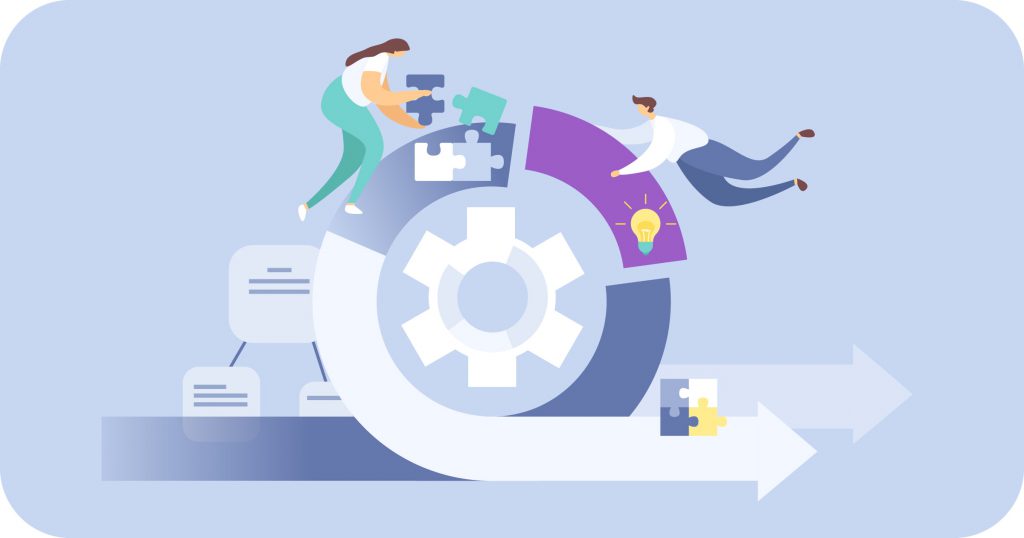Agile methodology has revolutionized the way businesses approach project management and software development. As we step into 2023, new trends are shaping the Agile landscape, influencing how teams work and collaborate. If you’re considering a career in Agile, it’s crucial to understand these trends and their implications. In this article, we’ll delve into the exciting developments in Agile and explore whether it’s a promising career path for aspiring professionals.
Agile methodology, born out of the need for flexible and adaptive project management, has come a long way since its inception. It’s characterized by its iterative and collaborative approach, allowing teams to respond to changes quickly. As industries evolve, so does Agile. Let’s explore the trends that are shaping its future.
The Evolution of Agile
Agile practices originated in the software development realm but have found applications in various industries. It has seen several iterations like Scrum, Kanban, and Extreme Programming (XP), each emphasizing unique aspects of Agile values and principles.
Trend 1: Hybrid Agile Approaches
In 2023, we’re witnessing the rise of hybrid Agile approaches. Teams are blending traditional Agile methodologies with other frameworks like Waterfall or Lean to create customized processes that suit their needs. This flexibility allows for better alignment with diverse project requirements.
Trend 2: Focus on Customer Experience (CX)
Customer-centricity is becoming paramount in Agile projects. Delivering value to the end-user is taking center stage. Agile teams are integrating design thinking and user feedback loops to enhance customer experiences, resulting in products that truly resonate with their audience.
Trend 3: Data-Driven Decision Making
Data is driving decisions in Agile projects. Teams are leveraging analytics to gain insights into project progress, customer behavior, and market trends. This empirical approach enables informed decision-making and continuous improvement.
Trend 4: Remote Agile Work
The remote work revolution has impacted Agile as well. Distributed teams are adopting Agile practices, utilizing digital tools for collaboration, sprint planning, and communication. This trend has opened doors for global talent participation.
Trend 5: AI and Automation in Agile
Artificial Intelligence and automation are finding their way into Agile processes. From automated testing to predictive analytics, these technologies streamline workflows, reduce manual intervention, and enhance overall efficiency.
Trend 6: Agile in Non-IT Industries
Agile methodologies are no longer confined to IT. Industries like marketing, healthcare, and construction are embracing Agile to manage projects effectively. This cross-industry adoption is expanding the scope of Agile careers.
Trend 7: Emotional Intelligence in Agile Leadership
Leadership in Agile is evolving. Emotional intelligence, effective communication, and empathy are gaining importance alongside technical skills. Agile leaders are nurturing collaborative environments that empower team members.
Trend 8: Sustainability and Agile Practices
Sustainability is a growing concern globally, and Agile is no exception. Organizations are integrating eco-friendly practices into Agile processes. This trend aligns with societal values and contributes to a more responsible future.
Is Agile Still Relevant?
In the ever-changing landscape of project management, the relevance of Agile might be questioned. However, its core principles – adaptability, collaboration, and customer focus – remain essential for navigating uncertainty and delivering value.
Agile as a Career Choice
Now, the question arises: Is Agile a good career path? The answer is a resounding yes. As Agile expands beyond IT, career opportunities are abundant. Agile professionals are in demand not only as Scrum Masters or Agile Coaches but also as Product Owners, Project Managers, and even executives.
Pros and Cons of an Agile Career
Like any career path, Agile has its pros and cons. On the positive side, Agile offers dynamic and fulfilling work environments, competitive salaries, and a chance to work on innovative projects. However, it requires constant learning, adaptability, and the ability to navigate ambiguity.
How to Build a Successful Agile Career
Building a successful Agile career requires a combination of technical skills, soft skills, and a growth mindset. Certifications like Certified ScrumMaster (CSM) or SAFe Agilist can enhance your credibility. Networking, staying updated, and embracing challenges are key to growth.
Conclusion
As Agile continues to evolve in 2023, it’s evident that it’s more than just a trend; it’s a transformative way of working. Whether you’re a seasoned Agile professional or considering it as a career choice, embracing these trends and cultivating a holistic skill set will undoubtedly set you on a path to success.
More info: Waterfall vs Agile



